Anthroposophy and Science: Observation, Experiment, Mathematics
8 lectures, Stuttgart, March 16–23, 1921 (CW 324)
Rudolf Steiner examines the underlying precepts of the modern scientific approach and its current tools of observation of nature, experimentation, and the use of mathematics to establish quantitative relationships which are then framed as laws. He relates the validity of this approach for examination of the lifeless mineral realm and then describes the different cognitive states that are necessary to scientifically examine the realms of the living and of the conscious.
Anthroposophy and Science was publish in German as, Naturbeobachtung, Experiment, Mathematik und die Erkenntnisstuffen der Geistesforschung. This translation was done by Walter Stuber and Mark Gardner, and was edited by Gladys Hahn and Gerald Karnow, M.D. The cover was designed by Maryann Perlman. We present this document here with the kind permission of the Rudolf Steiner-Nachlassverwaltung, Dornach, Switzerland. From Bn 324, GA 324, CW 324.
C O N T E N T S:
Introduction by Georg Unger, PhD
1. March 16, 1921: The three forms of science. Observation of nature, experiment and mathematical penetration of nature. The nature of the experiment. The certainty of mathematical knowledge. Psychology then and now. Growth in boys and girls. The customary cognition of nature. The philosophy of David Hume. Mathematical cognition as an inner constructive activity. Spiritual cognition as an inner activity encompassing reality.
2. March 17, 1921: “Membering” of the human being into nerve-sense system, rhythmic system of feeling and metabolic-will system as described in the book Riddles of the Soul. The inner nature of vision, arm movement and walking in relation to the three dimensions of space.
3. March 18, 1921: The possibility of explaining nature out of itself and the super-sensible world. Normal and mathematical nature knowledge. The application of mathematical cognition to the mineral, dead world; attaining an apprehension of the plant world through imaginative cognition. The two kinds of clairvoyance. The theory of the subjectivity of sense perception. The duality of the eye as a physical apparatus and an organ streamed through by life. The discovery of the etheric body through imagination. The application of this view to the whole human being. The longing for an expansion and a deepening of our cognition.
4. March 19, 1921: Modern sense-physiology and the twelve senses. The neurologist Meynert. Controversy in the Giordano Bruno Association concerning mental imaging. Theodor Ziehen’s psychology. Analytic and synthetic (projective) geometry. Moriz Benedikt and mathematics. Inspirational cognition of the rhythmic system. The Yoga system. The nature of symbolism. The psychological origin of cultic action. The modern intellect. Earlier cultic activity and modern scientific experiment.
5. March 21, 1921: Modern sense-physiology and the twelve senses. The neurologist Meynert. Controversy in the Giordano Bruno Association concerning mental imaging. Theodor Ziehen’s psychology. Analytic and synthetic (projective) geometry. Moriz Benedikt and mathematics. Inspirational cognition of the rhythmic system. The Yoga system. The nature of symbolism. The psychological origin of cultic action. The modern intellect. Earlier cultic activity and modern scientific experiment.
6. March 22, 1921: The memory picture and its transformation in Imagination and Inspiration. The intellect in modern natural science and in Goethe. The phenomenon and the archetypal phenomenon. The enhanced activity of forgetting as experience of inner freedom. From the nature of memory to the cognition of the inner aspects of the human being: liver, kidney. St. Theresa, Mechtild von Magdeburg. The formation of the nervous system. Lectures about “Anthroposophy” in 1909 and the book “Anthroposophy. A Fragment.” The correspondence of one upper and one lower organ in man. Spiritual psychology and therapy.
7. March 23, 1921: The nature of Intuition. Tumor formation and its healing. Intuition as an inversion of sense-perception. Indefinite perception and dark belief. Life before birth and after death, repeated earth lives. Falling asleep and waking up. The method of writing history. Dante, Luther, Constantine, Julian the Apostate. Concerning the experience of the forces active in history which are not described. Verifying super-sensible facts. The experiment and its consequences for the scientific experience of modern man. Spiritual scientific knowledge as a fructification of the other sciences.
8. March 23, 1921: The picture of anthroposophy as the light illuminating a space. The scientific nature of anthroposophy and the social question. The Waldorf School and other institutions originating out of anthroposophy. The necessity of the uniformity of all knowledge. The verification of anthroposophical knowledge. Concerning opponents. Confidence in the academic youth. Admonition to the youth: “Open the shutters!”
About the Author
Rudolf Steiner (1861–1925) was born in the small village of Kraljevec, Austro-Hungarian Empire (now in Croatia), where he grew up (see right). As a young man, he lived in Weimar and Berlin, where he became a well-published scientific, literary, and philosophical scholar, known especially for his work with Goethe’s scientific writings. At the beginning of the twentieth century, he began to develop his early philosophical principles into an approach to systematic research into psychological and spiritual phenomena. Formally beginning his spiritual teaching career under the auspices of the Theosophical Society, Steiner came to use the term Anthroposophy (and spiritual science) for his philosophy, spiritual research, and findings. The influence of Steiner’s multifaceted genius has led to innovative and holistic approaches in medicine, various therapies, philosophy, religious renewal, Waldorf education, education for special needs, threefold economics, biodynamic agriculture, Goethean science, architecture, and the arts of drama, speech, and eurythmy. In 1924, Rudolf Steiner founded the General Anthroposophical Society, which today has branches throughout the world. He died in Dornach, Switzerland.

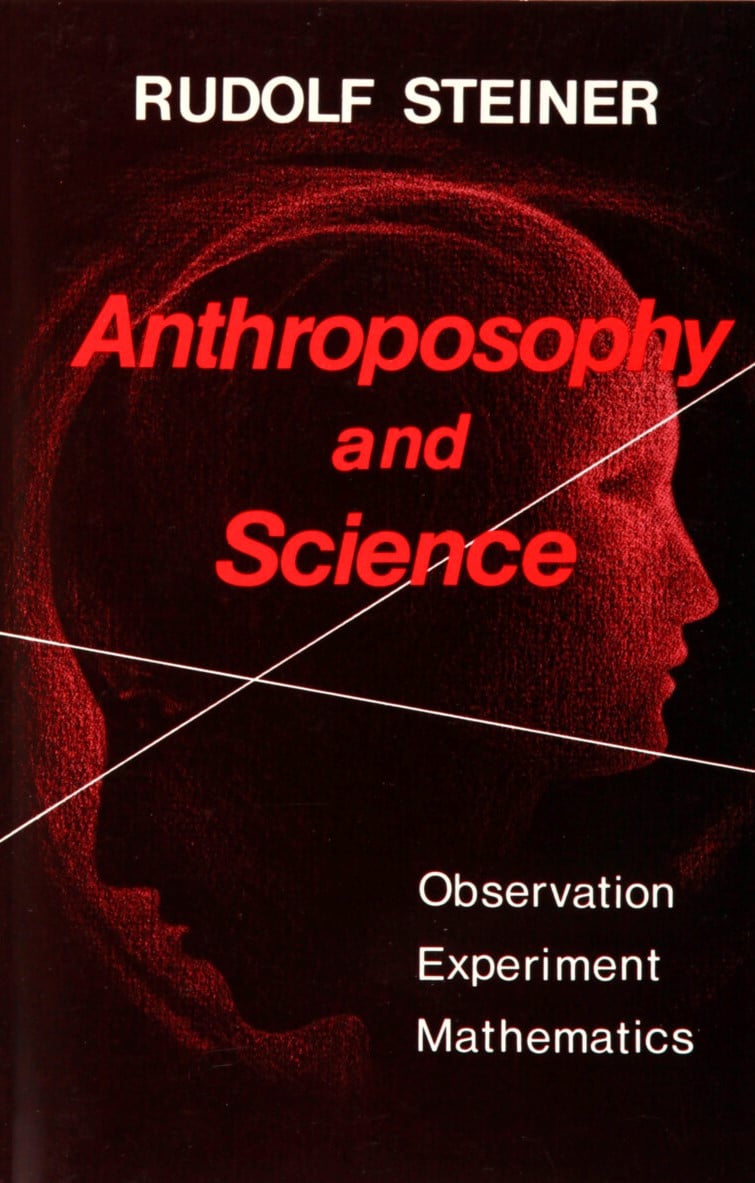
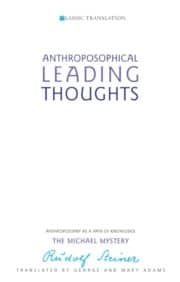
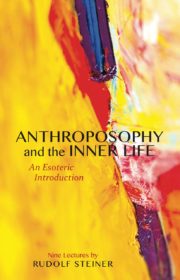

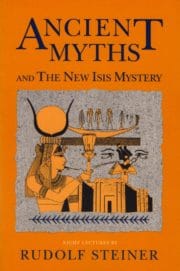

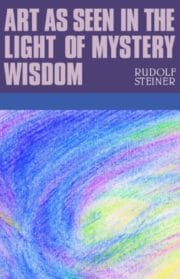


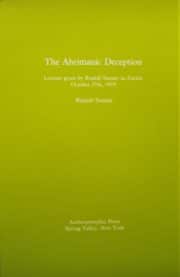

Reviews
There are no reviews yet